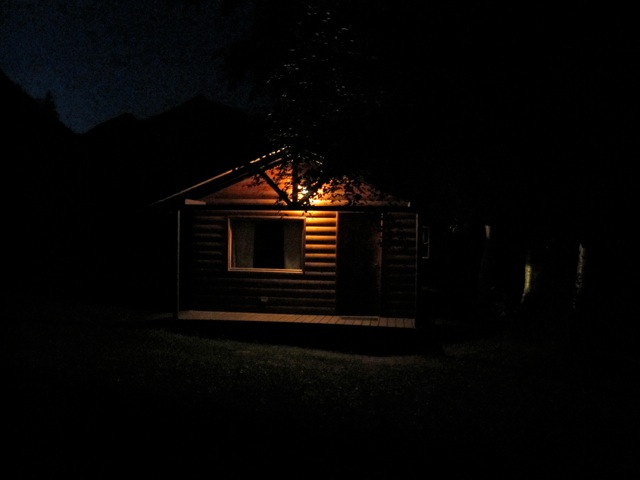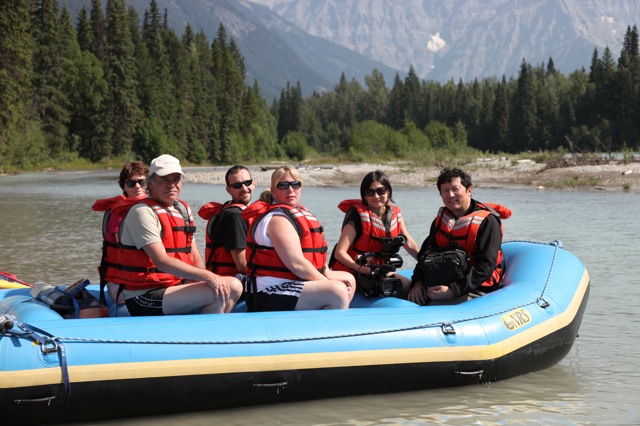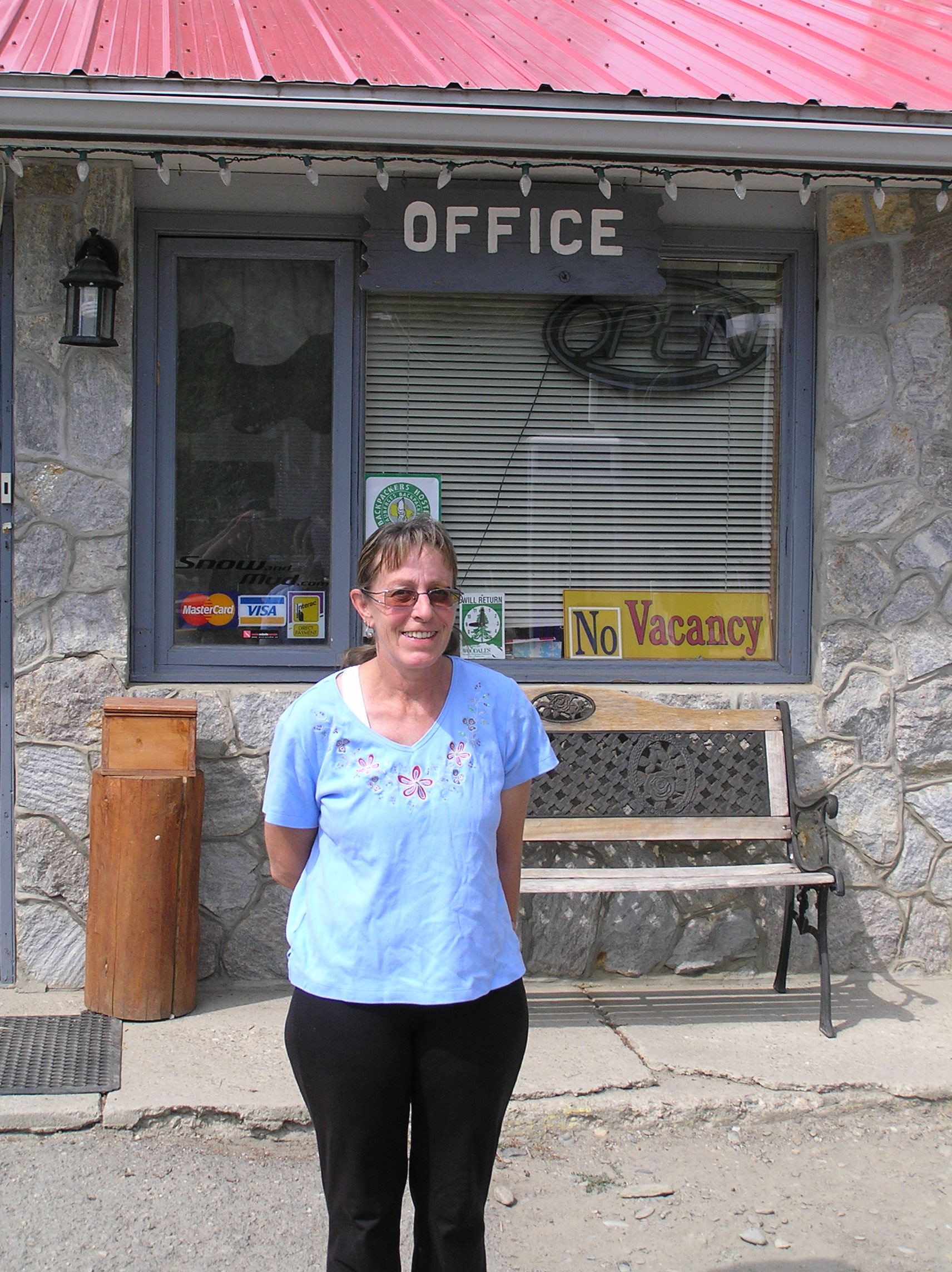…of course, it depends a lot WHERE you leave it behind. The night we got to Mount Robson, we were supposed to spend the night in Valemount, about 20 minutes away. But on a whim, we decided to pull into a campground about 5 minutes from Moose Lake and it turned out that someone had just cancelled and the cabin was free! So we ended up staying the night on the banks of the River in sight of Mount Robson. We took talks by the River bank, listening to the steady swishing as the sun slowly snuffed out. Then fade in the stars and we were treated to a show of shooting stars and shimmering constellations.
In the morning, Gu got up at 5AM and woke us up an hour later to go back to Moose Lake. The night before, we found out that the campground was connected to an adventure excursion company. They did two tours — one where you float in a raft and just enjoy the scenery in a still section of the river and then a classic white water rafting tour. So Jennifer and Gu took all the gear onto the (slow) raft and started filming.
Meanwhile, I had read that there was Japanese Internment camp by the Highway and so set out to find the remains. But I kept driving by the site and there seemed to be nothing. After 45 minutes of this, I returned to the campsite and asked the office, who told me to drive into the little village of Tete Jaune (pronounced Teet John) and ask at the Lodge. So I went over and met Ailee Beaudry, who runs the lodge and is an expert on local history and she told me a bit more about the area. It turns out that during the Fur Trade, Valemount was a major centre of activity because of its proximity to the River. Over the years, there were Chinese settlements (railway workers) and settlers married local First Nations women. But in 1907, the Shuswap people were moved under duress south to “empty out” the wilderness. During WWII, there was a Japanese internment camp with gardens and a tea house. Today, though, it’s just a highway that you take on the way to Mt. Robson and Jasper. Talking to Ailee was eye-opening because it revealed the histories and communities that have been repressed in order to make the wilderness, well, the wilderness. I’ll blog more about our conversations at a later date. I never found the camp remains.
Categories:


